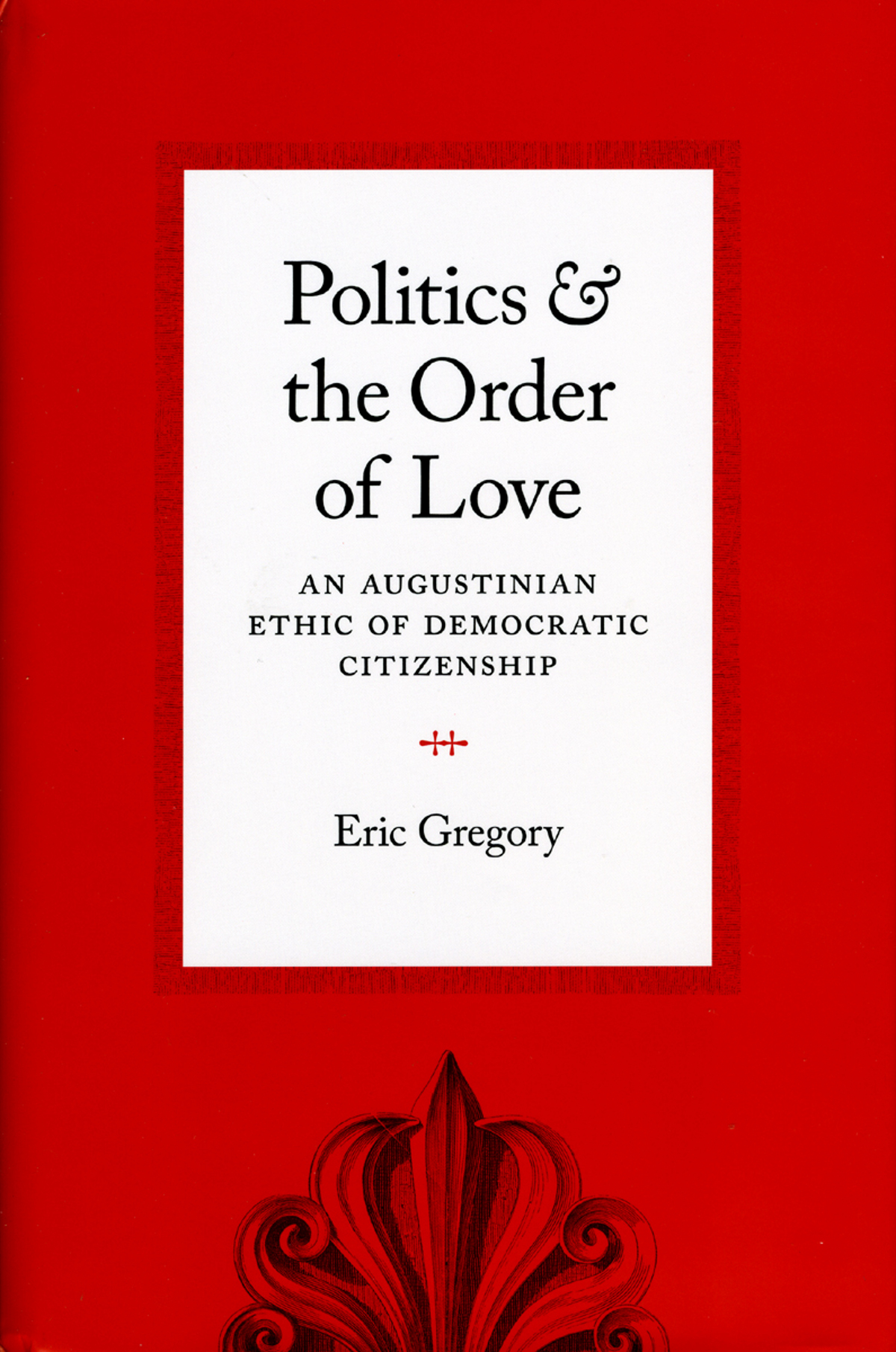Assumed audience: ‘Little-o’ orthodox Christians interested in political theology, or others curious about what a healthier (because more robustly!) Christian political theology might look like.

Gregory successfully carves out space for Augustinian liberalism—but I (still!) eagerly await a book building on the ground Gregory cleared.
When it comes to politics, I find myself a “liberal” in the broadest sense of the word: committed to working in and through plurality if not to the goodness of pluralism, and grateful for proceduralism if ever and deeply aware of its limits. Theologically, I find myself most at home in the broadly Reformed tradition, which means also ultimately in the Augustinian tradition — an inheritance I had deeply internalized by way of Tolkien long before I was capable of articulating it. This combination means that any kind of Augustinian political liberalism appeals to me, and as such Eric Gregory’s Politics & The Order of Love: An Augustinian Ethic of Democratic Citizenship would seem to be pitched right at me.
Alas, the book left me a bit frustrated. There was much to appreciate in it, and I think I largely agree with Gregory on the substance of his argument. What’s more, I learned a great deal from the book, and it proved a helpful bridge to the thought of a great many writers whose work I intend to pursue more deeply in the future. The problem is not so much that the book is not good, but that I was hoping for a rather different book than the one Gregory actually wrote.
I think it’s fair to characterize Politics & the Order of Love as a productive entry into a discussion of Augustine and his politics and whether or how they might prove useful for ressourcement — rather than as a constructive proposal about the actual concrete shape or content of an Augustinian liberalism. That is: Gregory wants to rescue Augustine from his critics: not wholly, but to a sufficient degree that he might be a fruitful resource for the development of liberalism. As the subtitle of the book suggests, Gregory takes Augustinian thought to be helpful for the development of liberal citizens. That is: an Augustinian (and more generally a publicly Christian) citizen can be a good citizen of a liberal order because, not in spite of, her Augustinian Christianity. In particular, he wants to open space for distinctively Augustinian ideas of love in political theology and political philosophy.
Thus, in his first chapter, Gregory writes (p. 56):
I am not interested, however, in the nature of political authority. My interests are in its condition. Politics does not have to be “natural” for it to warrant moral status within Christian experience; and we need not anachronistically turn Augustine into a radical political reformer in order to rehabilitate an Augustinian ethic of democratic citizenship.
And likewise in the conclusion (p. 366):
My reconstruction of a particular aspect of Augustinian theology has focused on the sensibilities and the virtues that should characterize an ethic of democratic citizenship. I have not offered a solution to the multifaceted debates about modern liberalism. I hope to have given some language that might liberate Augustinianism from the caricatures of our big intellectual histories — the sorts of histories that Augustine himself promoted. At the same time, I tried to provide vocabularies that might relieve the conceptual power of some unhelpful dichotomies, i.e., love vs. justice, realism vs. idealism, egotism vs. altruism, and transcendence (God) vs. immanence (neighbor). These dualisms can have heuristic value, but they also get in the way of thinking seriously about both Augustinianism and liberalism. In short, I have tried to make good on my stated effort to expand the Augustinian imagination for liberal democracy and the liberal democratic imagination for Augustinianism.
That final sentence says it all: Gregory’s goal was to “expand the Augustinian imagination for liberal democracy and the liberal democratic imagination for Augustinianism” — not, as I hoped when I first picked up the book, to actually do the work of imagining. Put another way: Gregory set out to about move the Overton Window for discussions of liberalism, Augustinianism, and love in the context of political theology — not to provide a constructive political-theological account of liberalism.
The result is a book which I expect accomplished its aim. Gregory’s argument addresses the strongest counter-arguments head-on, and draws on a remarkable variety of sources to make his point. He cites contemporary feminists, just war theorists, Christian social ethicists, political philosophers both friendly and hostile, and of course Augustine himself with equal facility. But Gregory was so committed to addressing every possible interlocutor that the book at times seemed to be nothing but citation.
Only in the introduction, the conclusion, and the introductions and conclusions of individual chapters does Gregory himself step forward in argument. On the one hand, this is a perfectly reasonable move when attempting to shift an entire field of discourse with one’s Ph.D. thesis, which is just what Gregory set out to do with the materials from which Politics & the Order of Love was built. On the other hand, those too-brief introductory and concluding materials are by far the best parts of the book, both for readability and for interest in the broader political concerns to which Gregory alludes.
The result was a good book — but one which is far more a (re)evaluation of Augustine and Augustinianism than it is a work of political theology. Students of Augustine with an interest in politics should certainly read Politics & the Order of Love. Students of politics with less than a very deep interest in Augustine would be better served reading only the introduction, chapter 1, the introduction and conclusion of the other chapters, and the conclusion. That’s no skin off Gregory’s back: he makes his project clear from the introduction, and I’m grateful that this ground-clearing work exists. But I eagerly await a book building on the ground Gregory cleared.